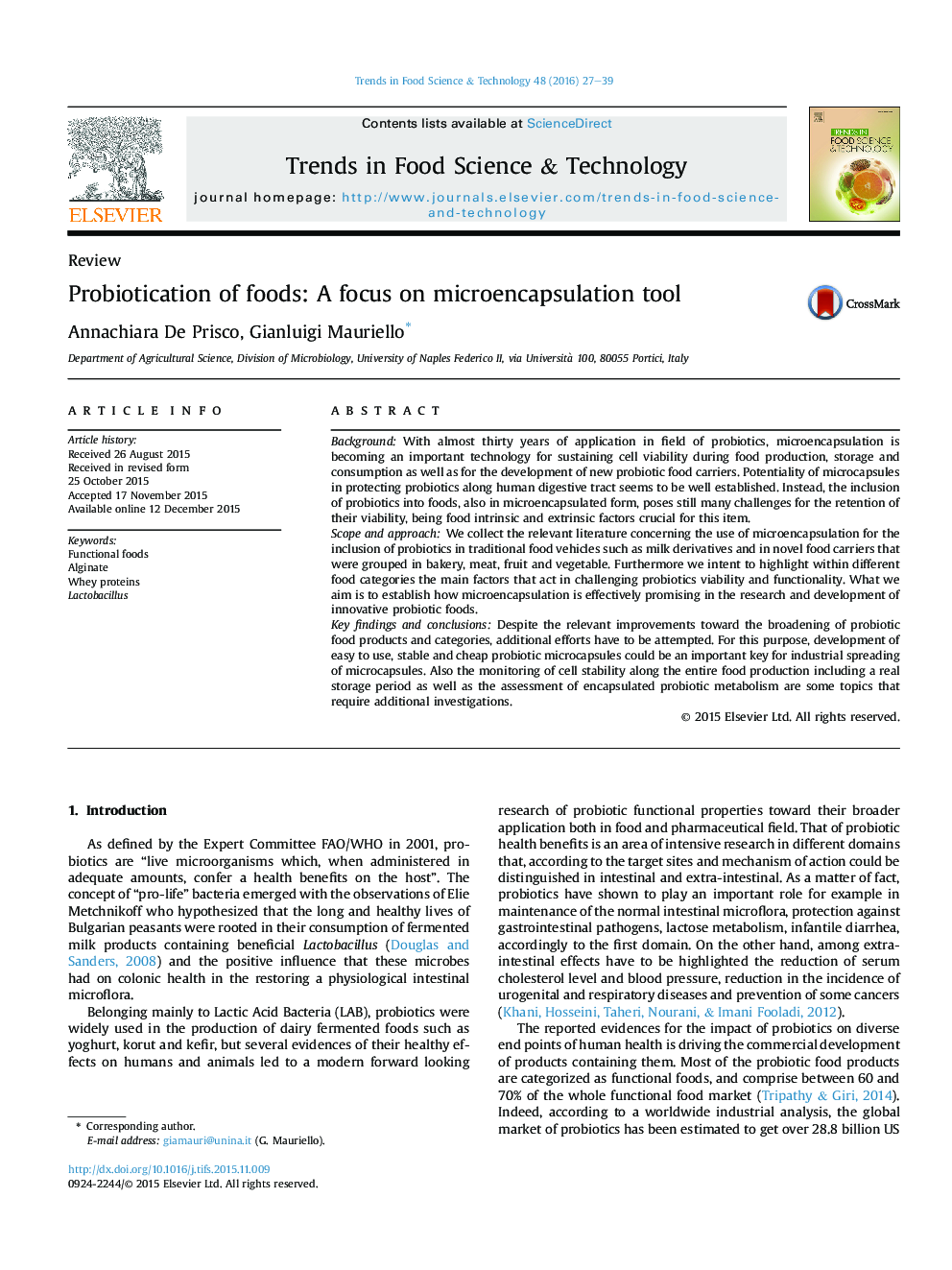| Article ID | Journal | Published Year | Pages | File Type |
|---|---|---|---|---|
| 2098539 | Trends in Food Science & Technology | 2016 | 13 Pages |
•The field of probiotic microencapsulation still need further investigation.•Most of papers on food probiotication through microencapsulation is on milk products.•Each food matrix poses potential new challenges for probiotic viability.•Microencapsulation can enhance the development of probiotic non dairy foods.
BackgroundWith almost thirty years of application in field of probiotics, microencapsulation is becoming an important technology for sustaining cell viability during food production, storage and consumption as well as for the development of new probiotic food carriers. Potentiality of microcapsules in protecting probiotics along human digestive tract seems to be well established. Instead, the inclusion of probiotics into foods, also in microencapsulated form, poses still many challenges for the retention of their viability, being food intrinsic and extrinsic factors crucial for this item.Scope and approachWe collect the relevant literature concerning the use of microencapsulation for the inclusion of probiotics in traditional food vehicles such as milk derivatives and in novel food carriers that were grouped in bakery, meat, fruit and vegetable. Furthermore we intent to highlight within different food categories the main factors that act in challenging probiotics viability and functionality. What we aim is to establish how microencapsulation is effectively promising in the research and development of innovative probiotic foods.Key findings and conclusionsDespite the relevant improvements toward the broadening of probiotic food products and categories, additional efforts have to be attempted. For this purpose, development of easy to use, stable and cheap probiotic microcapsules could be an important key for industrial spreading of microcapsules. Also the monitoring of cell stability along the entire food production including a real storage period as well as the assessment of encapsulated probiotic metabolism are some topics that require additional investigations.
